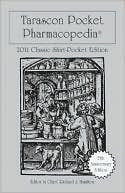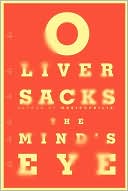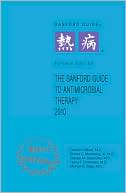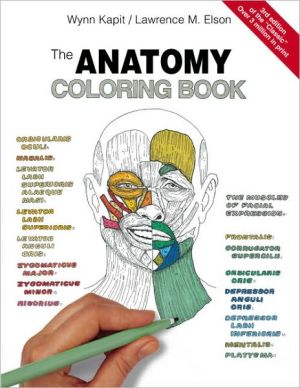Will to Live: AIDS Therapies and the Politics of Survival
Will to Live tells how Brazil, against all odds, became the first developing country to universalize access to life-saving AIDS therapies—a breakthrough made possible by an unexpected alliance of activists, government reformers, development agencies, and the pharmaceutical industry. But anthropologist João Biehl also tells why this policy, hailed as a model worldwide, has been so difficult to implement among poor Brazilians with HIV/AIDS, who are often stigmatized as noncompliant or...
Search in google:
"Will to Live is a wonderful contribution not only to anthropology but also to social medicine, medical ethics, and our understanding of the pharmaceutical industry. At the same time, it provides an intimate view of what it's like to live with both AIDS and poverty in Brazil. This is one of the few studies of AIDS than can claim to move easily between a deeply affecting psychological analysis, born of careful ethnographic work and of long-term conversations few are privileged to have, and a more experience-distant look at diagnostic technologies, the way drugs are used, and the medical professionals who deliver care. The photographs by Torben Eskerod are both beautiful and haunting and lend even more depth to this remarkable book."—Paul E. Farmer, Harvard University, and founding director of Partners In Health"João Biehl's Will to Live is one of the most exceptional studies of the response to HIV and AIDS that I have ever had the chance to read. I believe that it will become a true classic in this field of research."—Richard G. Parker, Columbia University"Will to Live is a terrific ethnography and a major scholarly study. It is going to be widely read and have a big impact because it tells the story of Brazil's public response to HIV and AIDS—the most important and innovative one in the developing world. The photographs are superbly well-fitted to the ethnography, their artistry wonderfully evocative."—Arthur Kleinman, Harvard University"This is a brilliant book, an arresting exposé of the world of AIDS treatment access. Biehl moves artfully between the bureaucratic and the intimate until the bureaucratic loses its abstract status as powerfully removed from the intimacy of everyday life. Will to Live is a major contribution to medical anthropology, science studies, politics, and public health—all fields that must now deal with the human costs and changing structures of power driven by the contemporary dynamics of neoliberalism and globalization."—Kay Warren, Brown University Lindsay Sprague - Anthropology in Action This is an insightful read for those interested in medical anthropology, the pharmaceutical industry, medical ethics, AIDS activism, and health studies. It is an essential tool for those seeking to understand the complexity of tackling the AIDS issue on the ground level.
Introduction: A New World of HealthThe Right to a Nonprojected Future 3Universal Access to Lifesaving Therapies 7A Political Economy of Pharmaceuticals 10Persistent Inequalities 14Lives"Take me to my father's house" (Edileusa) 20"Today is another world" (Luis) 22"If I only had thought then the way I think now" (Rose) 26"Why will I think about the future?" (Nerivaldo) 30"A child is what I wanted most in life" (Evangivaldo) 33"To have HIV...is like not having money" (Valquirene) 37"Too much medication" (Soraia) 40"A beautiful place" (Tiquinho) 43The Politics of Survival 47Pharmaceutical GovernanceGlobalization and Statecraft 53The Social Science of a Transforming Regime 55AIDS, Democratization, and Human Rights 58A Transnational Policy-Space 64The Activist State 68Intellectual Property Rights and World Trade 73A Country's Disease-Public-Private Partnerships 79Decentralization and a Magic Bullet Approach 84Public-Sector Science and the Production of Generic Drugs 87Scaling-Up 93The Pharmaceuticalization of Public Health 97Circuits of CareHow Has AIDS Activism Changed? 105From Passion to Politics 110The AIDS Industry 115Micro-Politics of Patienthood 120Performing Citizenship 125Grassroots Health Systems 130A New National AIDS Program 135On the Street: Violence, Charity, and Pleasure 140In the Mainstream 155Measures of Success, Undesirable Realities 160The Undetectable Virus 164"It is all about medicines now" 169In Search of a Comprehensive Approach 172"There is not just one death" 175A Hidden EpidemicThe Limits of Surveillance 179AIDS in Bahia 180Economic Death 184Pelourinho 190"I set myself on fire" (Maria Madalena) 194"They take care of me as if I were family" (Lazaro) 198Technologies of Invisibility 202A System of Nonintervention 204Infectious Diseases Research 206Medical Sovereignty, Local Bioethics 209Triage 213The Social Life of Death Certificates 217AIDS Therapies and Homelessness 225"Science makes people equal" 232Brasilia 236Experimental SubjectsAIDS-like Symptoms 241HIV Antibody Test 244Certainty: Closing the Past 246Uncertainty: The Window Period 246A Population of Doubts 250What Is Socially Visible Is an Imagined AIDS 253Risk and Prevention Models 257Libidinal Order 259Science and Subjectivity 263Dangerous Worlds of Intimacy 267Technoneurosis 270"They own their bodies and are responsible for their actions" 272Clinical Trials 276Patient-Citizenship"On the plane of immanence that leads us into a life" 283A Place of No Government 286Pastoral Power 296Institutional Belonging and Treatment Adherence 303New Prohibitions 308"In Caasah we don't just have AIDS-we have God" 312Religion, Health, Wealth 318Ambiguous Political Subjects 324Resuming Sexual Life 327Beyond Direct Observed Therapy 334Will to LiveLifelong AIDS 339Human Values 344Medical Disparities 347From Epidemic to Personalized Disease 349Physically Well, Economically Dead 353Drug Resistance and Rescue Treatments 355"Medication is me" (Luis) 358"I am mother and father" (Rose) 363"It is the financial part of life that tortures me" (Evangivaldo) 368Conclusion: Global Public HealthLarge-Scale Medical Change 375"A little more reverence for life" 377The Future of Treatment Rollouts 379Pharmaceutical Philanthropy and Equity 383Where Is the State? 388A Vanishing Civil Society 393Understanding the Nexus of AIDS, Poverty, and Politics 396Local Economies of Salvation 399The Unexpected and the Possible 404Acknowledgments 407Notes 411References 425Index 451
\ American Journal of SociologyWill to Live is an impressive and moving analysis by an engaged ethnographer. . . . Biehl presents a powerful example of how ethnographic investigation can illuminate the fine details and trajectories of people's lives while also informing critical analysis of broad shifts in global and national health policies.\ — Steven Epstein\ \ \ \ \ Choice\ - E.J. Schatz\ Biehl's powerful ethnography beautifully mixes visual and written portraits of those who lived and died as Brazil developed its public health and policy responses to AIDS. The author gives voice to those at the margins—the poor, the homeless, homosexuals, drug addicts, transvestites, prostitutes—who remained stigmatized and invisible as Brazil universalized access to AIDS therapies. . . . Biehl convincingly argues the importance of understanding the history and politics of AIDS pharmaceuticalization, the role of social mobilization, and the invisibility of the marginalized in official statistics and care in grasping the reality of AIDS in Brazil.\ \ \ American Ethnologist\ - Matthew Gutmann\ In Will to Live, João Biehl combines critical public health, ethnography, and even a mini epidemiological survey, studying AIDS therapies up, down, and sideways. . . . The running commentary from major decision-makers in the novel Brazilian approach to AIDS provides both insights and rather transparent post facto justifications for the state's regulatory practices. These are nicely complemented by activist and patient critiques throughout the text.\ \ \ \ \ Ethos\ - Cristina Redko\ Biehl's ethnography is already a paradigmatic example of how transformations in subjectivities and social experience can be investigated at all levels: personal, social, political, and global. The book is also exceptional, while describing in fruitful ways, complex interconnections that might occur within and across levels of lived experience. . . . I strongly recommend this book to all those interested in pursuing anthropological investigations emphasizing the conceptual significance of lived experience through 'experience-near' analyses and 'thick description.'\ \ \ \ \ New England Journal of Medicine\ - Carlos M.F. Antunes\ [João Biehl's] book is important for understanding a complex public health program in a developing country. It is well written; the chapter that contains patients' testimonies is particularly emotional and poignant.\ \ \ \ \ Journal of Anthropological Research\ - Tom Boellstorff\ Will to Live is a compellingly crafted study of AIDS in Brazil, an exemplar of how careful ethnographic work can illuminate the place of everyday life in the constitution of, and response to, globalizing forces. . . . I bring a unique understanding of, and appreciation for, Biehl's achievement. It is significant.\ \ \ \ \ Kaleidoscope\ - Rachel Douglas-Jones\ Biehl manages to make his writing accessible, informative, fluid and engaging, resulting in a text which requires no prior knowledge of the subject matter, or the methods of anthropological research. As such, while deeply anthropological in approach and commitment to ethnographic forms of narrative, the book will enlighten, challenge and fascinate readers from a wide range of disciplines, from medicine to health policy, sociology to government, STS and law.\ \ \ \ \ Anthropology in Action\ - Lindsay Sprague\ This is an insightful read for those interested in medical anthropology, the pharmaceutical industry, medical ethics, AIDS activism, and health studies. It is an essential tool for those seeking to understand the complexity of tackling the AIDS issue on the ground level.\ \ \ \ \ American Journal of Sociology\ - Steven Epstein\ Will to Live is an impressive and moving analysis by an engaged ethnographer. . . . Biehl presents a powerful example of how ethnographic investigation can illuminate the fine details and trajectories of people's lives while also informing critical analysis of broad shifts in global and national health policies.\ \ \ \ \ ChoiceBiehl's powerful ethnography beautifully mixes visual and written portraits of those who lived and died as Brazil developed its public health and policy responses to AIDS. The author gives voice to those at the margins—the poor, the homeless, homosexuals, drug addicts, transvestites, prostitutes—who remained stigmatized and invisible as Brazil universalized access to AIDS therapies. . . . Biehl convincingly argues the importance of understanding the history and politics of AIDS pharmaceuticalization, the role of social mobilization, and the invisibility of the marginalized in official statistics and care in grasping the reality of AIDS in Brazil.\ — E.J. Schatz\ \ \ \ \ American EthnologistIn Will to Live, João Biehl combines critical public health, ethnography, and even a mini epidemiological survey, studying AIDS therapies up, down, and sideways. . . . The running commentary from major decision-makers in the novel Brazilian approach to AIDS provides both insights and rather transparent post facto justifications for the state's regulatory practices. These are nicely complemented by activist and patient critiques throughout the text.\ — Matthew Gutmann\ \ \ \ \ EthosBiehl's ethnography is already a paradigmatic example of how transformations in subjectivities and social experience can be investigated at all levels: personal, social, political, and global. The book is also exceptional, while describing in fruitful ways, complex interconnections that might occur within and across levels of lived experience. . . . I strongly recommend this book to all those interested in pursuing anthropological investigations emphasizing the conceptual significance of lived experience through 'experience-near' analyses and 'thick description.'\ — Cristina Redko\ \ \ \ \ New England Journal of Medicine[João Biehl's] book is important for understanding a complex public health program in a developing country. It is well written; the chapter that contains patients' testimonies is particularly emotional and poignant.\ — Carlos M.F. Antunes, Sc.D.\ \ \ \ \ Chronicle Review[Will to Live] argues that, despite the government's commitment, treatment has been difficult to implement among HIV-positive poor Brazilians, who are often stigmatized.\ \ \ \ \ Journal of Anthropological ResearchWill to Live is a compellingly crafted study of AIDS in Brazil, an exemplar of how careful ethnographic work can illuminate the place of everyday life in the constitution of, and response to, globalizing forces. . . . I bring a unique understanding of, and appreciation for, Biehl's achievement. It is significant.\ — Tom Boellstorff\ \ \ \ \ KaleidoscopeBiehl manages to make his writing accessible, informative, fluid and engaging, resulting in a text which requires no prior knowledge of the subject matter, or the methods of anthropological research. As such, while deeply anthropological in approach and commitment to ethnographic forms of narrative, the book will enlighten, challenge and fascinate readers from a wide range of disciplines, from medicine to health policy, sociology to government, STS and law.\ — Rachel Douglas-Jones\ \ \ \ \ Anthropology in ActionThis is an insightful read for those interested in medical anthropology, the pharmaceutical industry, medical ethics, AIDS activism, and health studies. It is an essential tool for those seeking to understand the complexity of tackling the AIDS issue on the ground level.\ — Lindsay Sprague\ \ \ \ \ American EthnologistIn Will to Live, João Biehl combines critical public health, ethnography, and even a mini epidemiological survey, studying AIDS therapies up, down, and sideways. . . . The running commentary from major decision-makers in the novel Brazilian approach to AIDS provides both insights and rather transparent post facto justifications for the state's regulatory practices. These are nicely complemented by activist and patient critiques throughout the text.\ — Matthew Gutmann\ \ \ \ \ Journal of Anthropological ResearchWill to Live is a compellingly crafted study of AIDS in Brazil, an exemplar of how careful ethnographic work can illuminate the place of everyday life in the constitution of, and response to, globalizing forces. . . . I bring a unique understanding of, and appreciation for, Biehl's achievement. It is significant.\ — Tom Boellstorff\ \ \ \ \ EthosBiehl's ethnography is already a paradigmatic example of how transformations in subjectivities and social experience can be investigated at all levels: personal, social, political, and global. The book is also exceptional, while describing in fruitful ways, complex interconnections that might occur within and across levels of lived experience. . . . I strongly recommend this book to all those interested in pursuing anthropological investigations emphasizing the conceptual significance of lived experience through 'experience-near' analyses and 'thick description.'\ — Cristina Redko\ \ \ \ \ Library JournalIn the mid-1990s, Brazil created an international model for AIDS treatment by making antiretrovirals available to any registered HIV patient. To examine this system's impact, Biehl (anthropology, Princeton Univ.; Vita: Life in a Zone of Social Abandonment) spent much of the last decade visiting Brazilian AIDS treatment centers and interviewing administrators, medical personnel, and patients. Here, he compiles his findings and discusses the "pharmaceuticalization of public health," wherein access to medication has become the primary focus of public health. However, as this scholarly ethnography clearly illustrates, treatment success is not limited to drug distribution. While AIDS medications have improved the lives of many Brazilians, others, particularly the poor, may get lost in the system. Without additional social and public health support, marginalized populations often end up back where they started, both medically and socially-unable to keep up with treatment regimes and needing psychological services and such major life necessities as adequate food and income. Photographer Eskerod's poignant images and Biehl's extensive quotations from patient interviews strengthen the book's message. Recommended for academic libraries.\ —Tina Neville\ \ \








